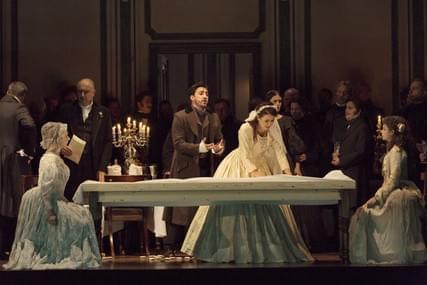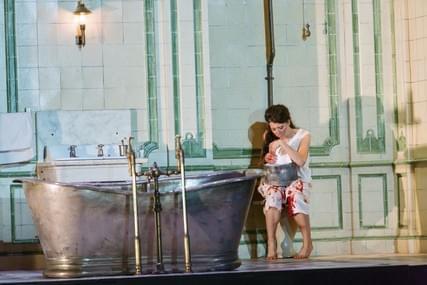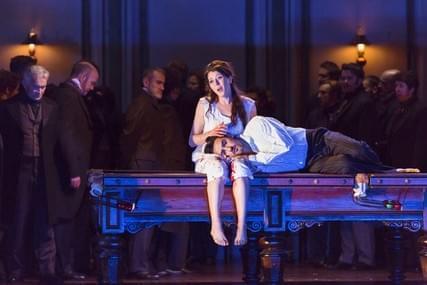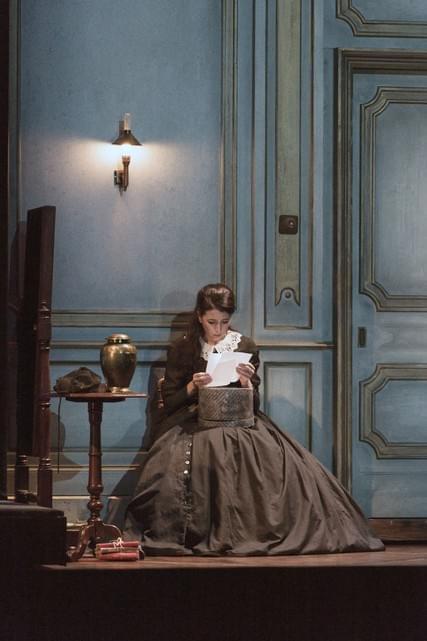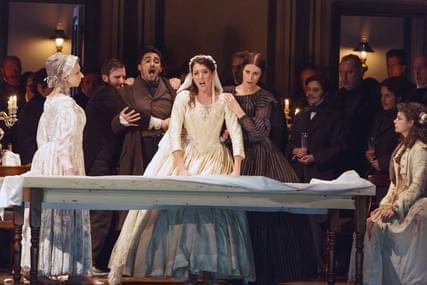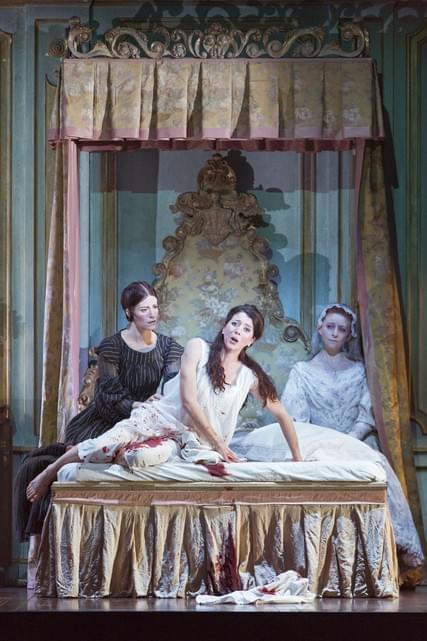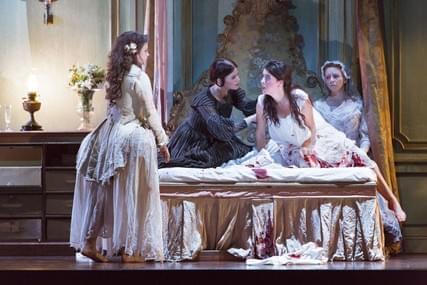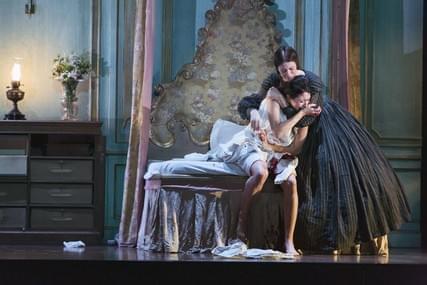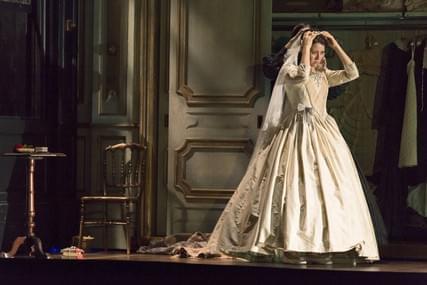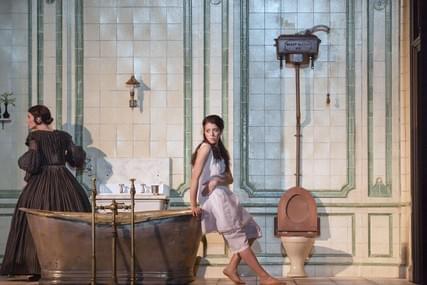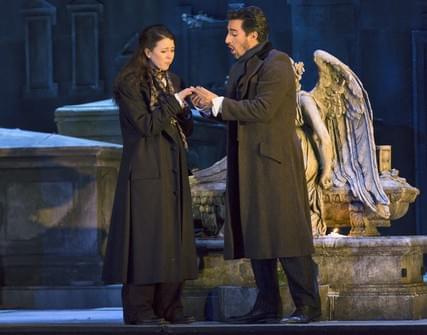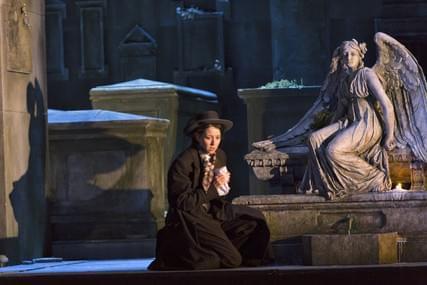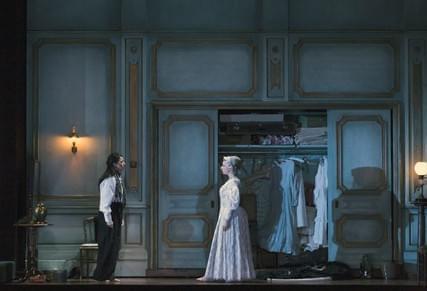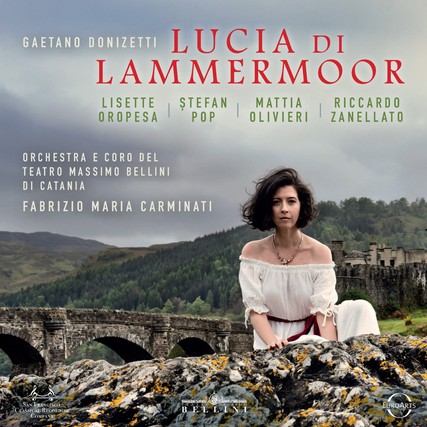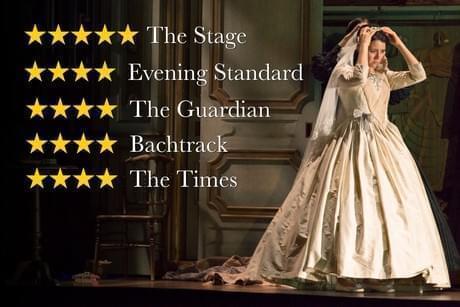Cast
| Lucia | Lisette Oropesa | |
| Edgardo | Charles Castronovo - Oct 30, Nov 02, 08, 11 | |
| Edgardo | Ismael Jordi - Nov. 15, 20, 24, 27 | |
| Enrico | Christopher Maltman | |
| Raimondo | Michele Pertusi | |
| Raimondo | Mirco Palazzi - Nov 20, 24, 27 | |
| Normanno | Andrew Tortise | |
| Arturo | Konu Kim | |
| Alisa | Rachel Lloyd | |
| Actor | Sacha Plaige | |
| Actor | Sarah Northgraves | |
| Actor | Remi Rachuba | |
| Actor | Abe Buckoke |
Michele Mariotti
DirectorKatie Mitchell
Set DesignerVicki Mortimer
LightingJon Clark
ChoreographyJoseph Alford
About
Written in 1835, LUCIA DI LAMMERMOOR is Donizetti’s tragic masterpiece. The opera marked the beginning of his partnership with regular collaborator librettist Salvadore Cammarano – who, as was the fashion of the day, looked to Walter Scott. Cammarano’s adaptation of Scott’s novel THE BRIDE OF LAMMERMOOR moved Donizetti greatly with its tale of the tragic consequences of a forced marriage. In the subsequent score he produced not only some of his most beautiful but also his most dramatically potent music.
Synopsis
Taking place in Scotland during the early 18th century, where the Ashtons and the Ravenswoods have a bitter rivalry, Edgardo Ravensood and Lucia Ashton have fallen in love and have sworn vows to each other. Enrico, Lucia's brother, learns of the relationship between Lucia and Edgardo and vows to tear them apart.
Enrico decides, for political reasons, to marry Lucia to Arturo Bucklaw. Enrico isn't sure that Lucia will go along with the wedding so he forges a letter saying that Edgardo has left her and has a new lover. Due to societal pressures, Lucia has no choice but to marry Arturo.
The wedding day between Lucia and Arturo arrives and the world of Lammermoor is tense and ominous. When Arturo meets Lucia he is befuddled by her strange mood. Enrico says that it was due to the death of her mother. Arturo signs the marriage contract and Lucia is forced to sign soon after. At the last moment, Edgardo suddenly arrives and finds that Lucia is married. Upset, he tries to fight Enrico and is stopped by the priest, Raimondo. He throws his promise ring to the ground and is forced out of the castle.
Enrico visits Edgardo to challenge him to a duel and tells him that Lucia is already having marital relations with Arturo. He tells Edgardo to meet him near the Wolf's Crag.
Back at the wedding party, Raimondo interrupts the crowd to tell everyone that Lucia has killed Arturo. She shows up, bloody from the stabbing and is in a crazed state. She sings the famous "Mad Scene", "Il dolce suono" where she believes she is married to Edgardo. Exhausted, Lucia collapses to the ground and passes out.
Back at the graveyard of Ravenswood, Edgardo learns of Lucia's death. Unable to go on living, he stabs himself with a dagger in hopes of reuniting with his love, Lucia.
Production
One of the UK’s most sought-after directors, Katie Mitchell created a new production for The Royal Opera in 2015. Mitchell compellingly draws the famous title character as a strong and independent woman who fiercely fights against her brother’s machinations. A spectacular split-screen set designed by Vicki Mortimer metes out the tragic events of Donizetti’s opera with devastating precision.
This controversial production has been called, "Powerful", "Shocking", a "Masterstroke". It made a splash at the Royal Opera House and returns again with Lisette Oropesa in the lead role.
Performance History
After a five year hiatus, Lisette returns to this role having performed it 13 times in the past. The Arizona Star said of Lisette's Lucia, "You could exhaust the dictionary looking for the perfect words to describe coloratura soprano Lisette Oropesa’s performance at Tucson Music Hall Saturday night. “Arresting.” “Stunning.” “Magnificent.” “Sublime.” Extraordinary.” They come to mind alongside “brilliant,” “breath-taking,” ‘divine” and “fearless.”". Lisette's return to this role also marks her her debut at London's Royal Opera House Covent Garden.
Length
LUCIA DI LAMMERMOOR is a 3 act opera with a running time of 3 hours and 15 minutes. It will include one interval.



